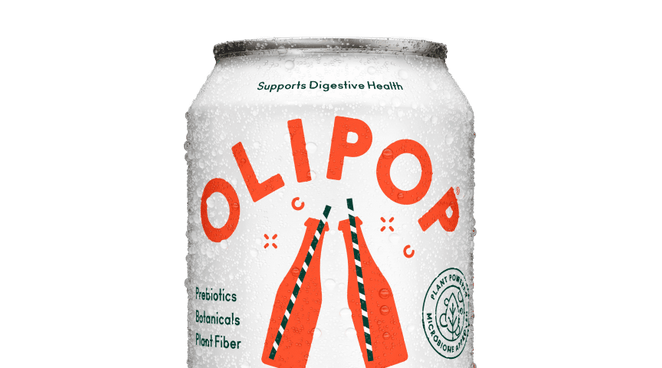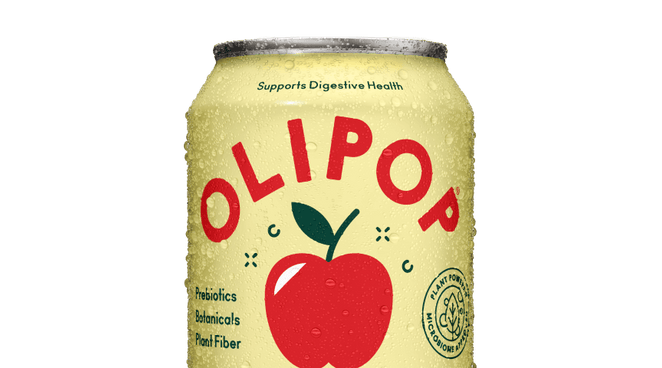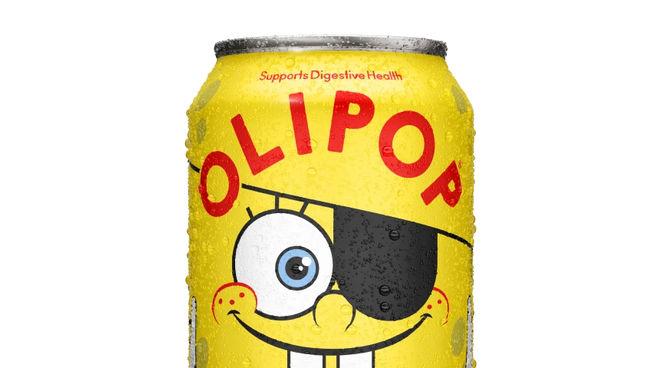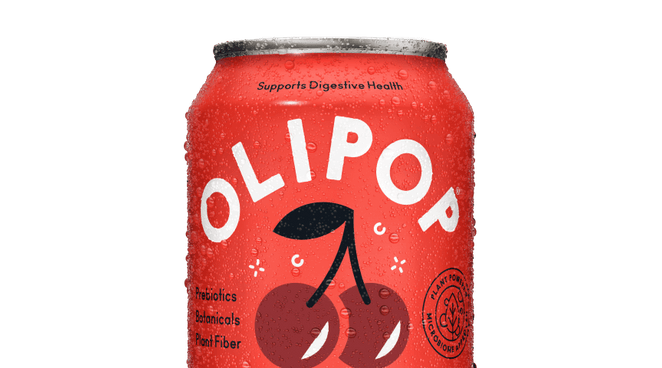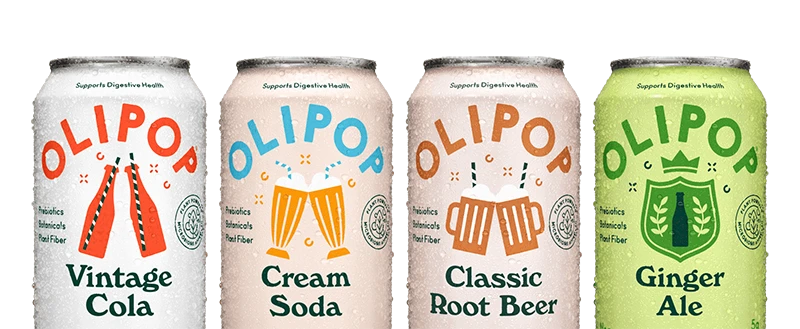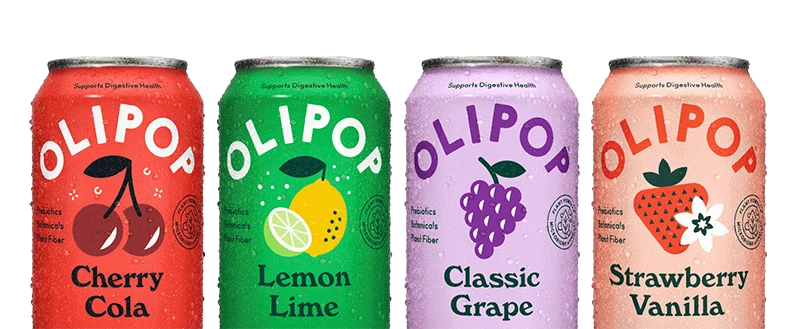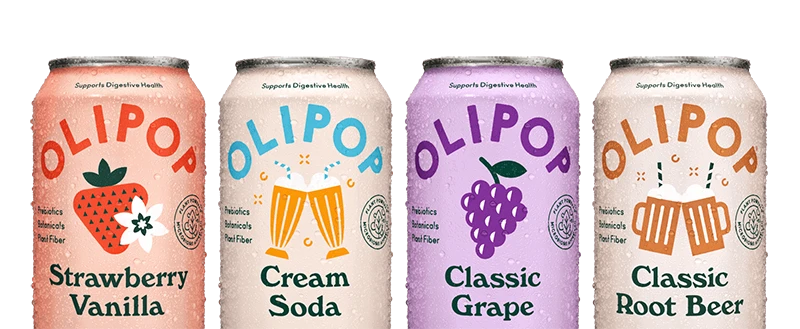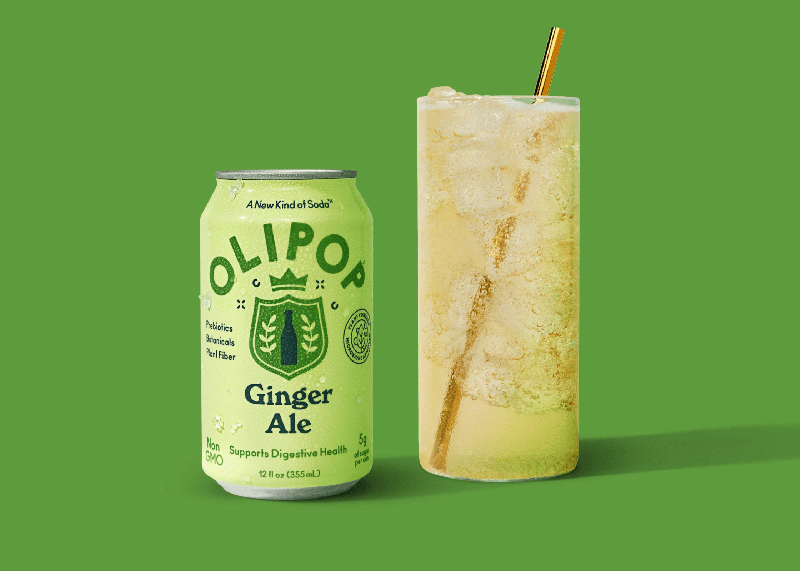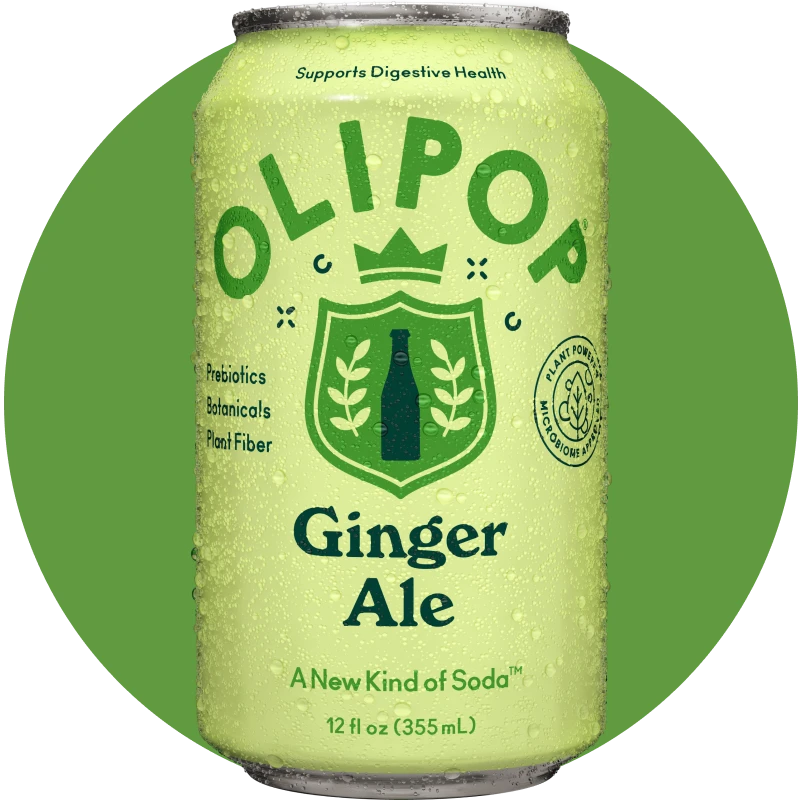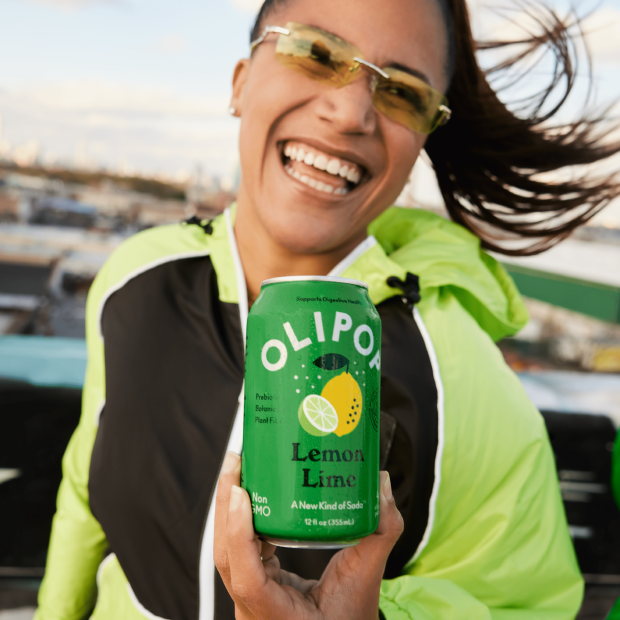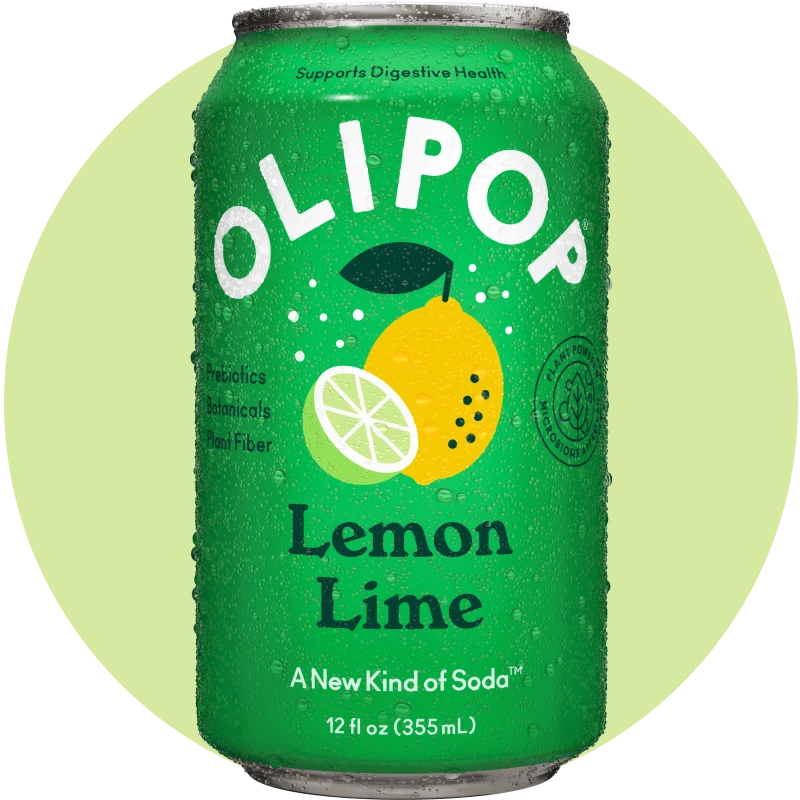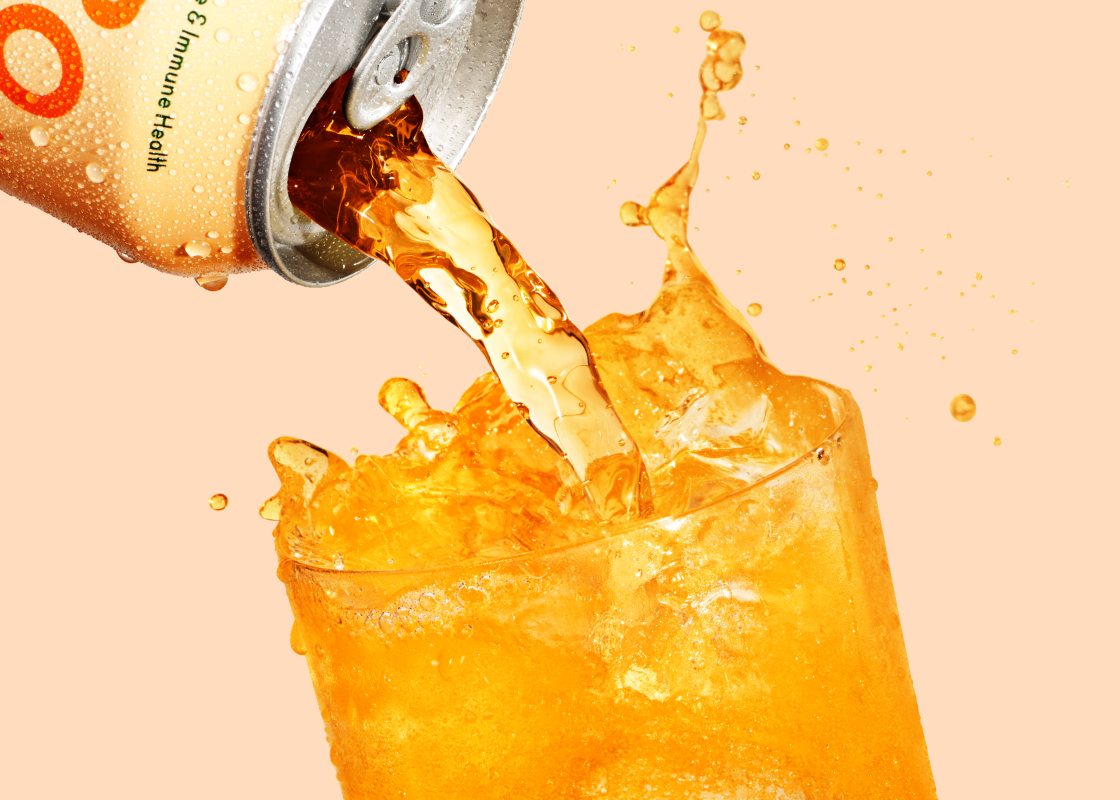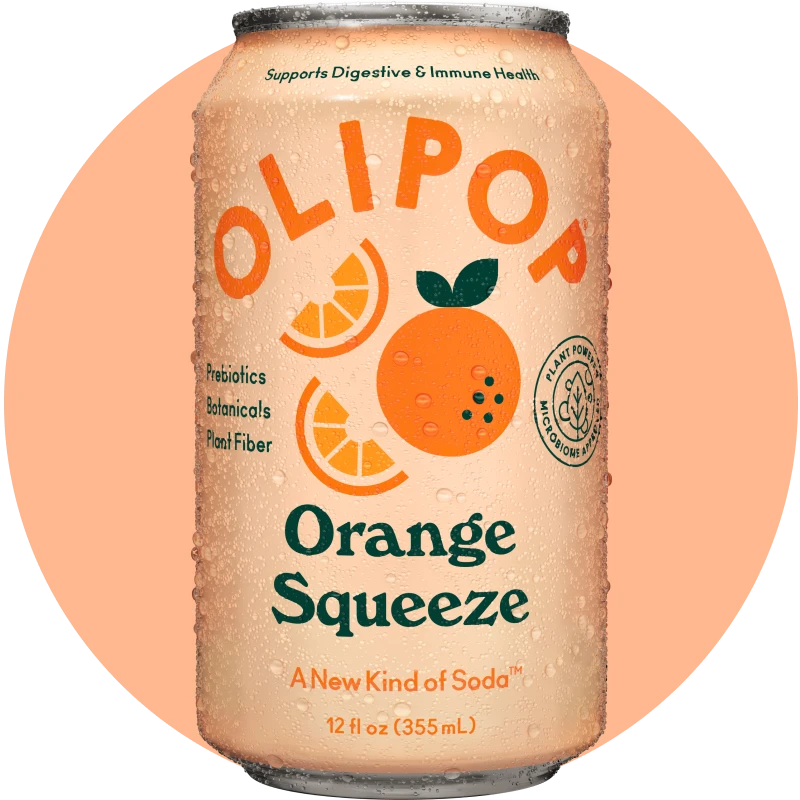Editor's Note: This article is written by Caroline Thomason, RD CDCES, a registered dietitian and a paid contributor to OLIPOP.
The trend of embracing a sober lifestyle is gaining popularity, and nutrition experts affirm that it’s more than just a fad. We have research that provides ample support for your decision to decrease or eliminate the booze from your routine. Whether you aspire to achieve better health or you have specific health goals in mind, cutting back on alcohol has perks.
Alcohol is classified as a class-one carcinogen, which indicates that there is conclusive evidence linking it to an increased risk of cancer. The World Health Organization deems that no amount of alcohol is safe for our health. The quantity of drinks you consume per week correlates positively with the likelihood of developing certain types of cancers later in life, as well as with heart health, stroke risk, and liver disease.
Dry January, or even Damp January, has evidence of health benefits spanning from physical and mental health to sleep hygiene. Let's explore how scaling back on alcohol consumption can enhance your lifestyle, and check out some ideas for non-alcoholic mocktails to keep your momentum up after Dry January is over.
Benefits of Dry January
1. Enhanced Immune Function
Alcohol is a toxin, which means it takes energy for the body to remove it from your system. On top of that, alcohol directly impacts your immune cells, particularly those in your digestive tract. A weakened immune system means that the body has a harder time fighting infection and may be more likely to experience illness and the physical manifestations of stress.
2. Improved Liver Function
You may already know that alcohol can be detrimental to your liver health. From fatty liver disease to liver cancer, alcohol has the potential to take a toll on your body's largest detoxifying organ. The liver serves as a toxin filtration system, removing toxins from your body. When you consume alcohol, it undergoes processing in the liver just like other chemicals, heavy metals, or toxic compounds. Over time, alcohol consumption can lead to liver disease and elevate the risk of various digestive cancers, including colon cancer.
The signs of liver disease typically can take years, even decades, to manifest. However, if you observe irregularities in your digestion, cutting back on alcohol may offer relief. Additionally, reducing alcohol intake can contribute to lowering the risk of digestive cancers such as esophageal, colon, and liver cancer.
Fiber intake could help improve digestion, acting as a “broom” to sweep out sluggish particles and keep things moving. In addition to reducing alcohol consumption, you will get a healthy dose of soluble fiber from drinking OLIPOP, too!
3. Better Sleep Quality
Drinking can give you the illusion of deeper sleep. However, this sensation is likely due to an impaired consciousness and lack of awareness during sleeping hours after drinking. Studies show that alcohol actually disrupts sleep, leading to either reduced sleep duration or lack of quality sleep. Many individuals anecdotally report experiencing poor sleep, elevated heart rate at night after drinking, and waking up the next morning feeling unrested, aka hungover.
We know that a good night’s sleep leads to increased energy levels, enhanced mental clarity, maintaining a healthy body weight, and more. If your goal is to achieve a more rejuvenating night's sleep, reducing your alcohol intake is a great start.
4. Reduced Anxiety and Stress Levels
Some research shows that you may experience some stress reduction from consuming moderate amounts of alcohol. However, the overwhelming body of research shows that while you may feel less anxious immediately after drinking some booze, long-term anxiety and stress levels can increase. Coined “hangxiety,” it’s normal to experience elevated sensations of anxiety the next morning after drinking. This is likely because alcohol consumption is a short-term coping strategy versus a long-term stress reduction method.
How to Reduce Your Alcohol Consumption
Reducing or limiting alcohol intake can feel like a difficult challenge! There's the fear of missing out on the stress relief alcohol seemingly provides. Not to mention the social aspects associated with regular drinking. But it doesn't need to be an all-or-nothing approach, and there are some strategies you can take to make Dry January easier. Here are a few tips:
- Baby Steps: Initiate a slow reduction in your drinking habits for a sustainable transformation.
- Do Damp January Instead: Opt for beverages with lower alcohol content. For instance, if you typically consume liquor, consider switching to wine or lighter beers. This strategy enables you to cut back on alcohol intake without significantly altering your drinking habits if you're not quite ready for a drastic change.
- Explore non-alcoholic options: Many companies now offer product lines featuring non-alcoholic versions of their popular drinks. These alternatives are not only low in alcohol but also spare you the empty calories associated with traditional alcoholic beverages.
- Mocktails: Consider making homemade mocktails! These beverages mimic the enjoyable aspects of alcoholic drinks, providing a delightful substitute for your usual cocktails.
Dry January Mocktail Recipes
Mocktails provide a viable alternative that allows you to enjoy a similar experience of sipping a fun beverage with friends while reaping the health benefits associated with decreasing overall alcohol consumption.
Need some mocktail inspiration? We’ve got Olivier, an esteemed soda sommelier and your personal online mixologist, on standby ready to craft the perfect mocktail for you. Head to this link and in just a few clicks, Olivier will concoct a mocktail recipe using OLIPOP and any ingredients you’ve got on hand. Or dive right into these recipes for delicious mocktails in minutes that will hit the spot:
Moscow Mule Mocktail Recipe
Ingredients:
- 1 heaping cup of ice
- ½ cup OLIPOP Ginger Ale
- ½ ounce lime juice
- Slice of lime
- Fresh cranberries or cucumber to garnish
- Optional: copper mug for temperature control
Pomelo Mocktail Recipe
Ingredients:
- 1 heaping cup of ice
- ½ cup OLIPOP Lemon Lime
- 2 ounce grapefruit juice
- Slice of grapefruit or lime to garnish
Orange Creamsicle Mocktail
Sonia at @sipwithsoni marked National Cocktail Day with a delightful mocktail: OLIPOP's Orange Squeeze soda over vanilla ice cream. A cool, decadent treat, this simple combo transitions from a refreshing drink to a creamy dessert.
Ingredients:
- 1 can OLIPOP Orange Squeeze
- 1 scoop vanilla ice cream
- 1 orange
Whether you’re embarking on Dry January, Damp January, or any kind of January, I hope these tips and mocktail recipes will be helpful on your journey to better health in 2024. Cheers!
Sources
- No level of alcohol consumption is safe for our health. (2023, January 4). World Health Organization. https://www.who.int/europe/news/item/04-01-2023-no-level-of-alcohol-consumption-is-safe-for-our-health
- Magherman, L., Van Parys, R., Pauwels, N., Verhelst, X., Devisscher, L., Van Vlierberghe, H., Geerts, A., & Lefere, S. (2023). Meta‐analysis: The impact of light‐to‐moderate alcohol consumption on progressive non‐alcoholic fatty liver disease. Alimentary Pharmacology & Therapeutics, 57(8), 820–836. https://doi.org/10.1111/apt.17388
- Roerecke, M., Vafaei, A., Hasan, O. S. M., Chrystoja, B. R., De La Cruz, M. H. C., Lee, R., Neuman, M. G., & Rehm, J. (2019). Alcohol Consumption and Risk of Liver Cirrhosis: A Systematic Review and Meta-Analysis. The American Journal of Gastroenterology, 114(10), 1574–1586. https://doi.org/10.14309/ajg.0000000000000340
- Ding, C., O’Neill, D., Bell, S., Stamatakis, E., & Britton, A. (2021). Association of alcohol consumption with morbidity and mortality in patients with cardiovascular disease: original data and meta-analysis of 48,423 men and women. BMC Medicine, 19(1). https://doi.org/10.1186/s12916-021-02040-2
- Biddinger, K. J., Emdin, C. A., Haas, M. E., Wang, M., Hindy, G., Ellinor, P. T., Kathiresan, S., Khera, A. V., & Aragam, K. (2022). Association of habitual alcohol intake with risk of cardiovascular disease. JAMA Network Open, 5(3), e223849. https://doi.org/10.1001/jamanetworkopen.2022.3849
- Colrain, I. M., Nicholas, C. L., & Baker, F. C. (2014). Alcohol and the sleeping brain. In Handbook of Clinical Neurology (pp. 415–431). https://doi.org/10.1016/b978-0-444-62619-6.00024-0
- Sarkar, D., Phil, D., Jung, M. K., & Wang, H. J. (2015). Alcohol and the Immune System. Alcohol Research, 37(2), 153–155. https://www.ncbi.nlm.nih.gov/pmc/articles/PMC4590612/
- Barr, T., Helms, C. M., Grant, K. A., & Messaoudi, I. (2016). Opposing effects of alcohol on the immune system. Progress in Neuro-Psychopharmacology and Biological Psychiatry, 65, 242–251. https://doi.org/10.1016/j.pnpbp.2015.09.001
- Alcohol is classified as a class-one carcinogen, meaning it could increase your cancer risk.
- According to the World Health Organization, no amount of alcohol is safe for your health.
- Dry January is a great opportunity to reduce your alcohol intake and improve your health. Take baby steps and explore non-alcoholic options like mocktails!


